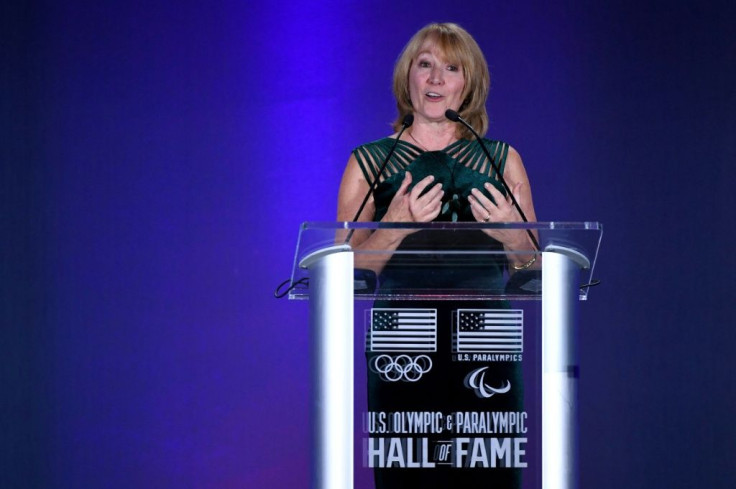No Need To Rush Tokyo Olympic Decision Say US As Splits Emerge

US Olympic chiefs said Friday more time was needed to determine the fate of the Tokyo Olympics as a major US sports federation called for the Games to be postponed over the coronavirus pandemic.
In a conference call with reporters, United States Olympic and Paralympic Committee (USOPC) chairwoman Susanne Lyons said there was no need for the International Olympic Committee to make an immediate decision on Tokyo.
"I think we would concur with the IOC to say that we need more expert advice and information than we have today to make a decision," Lyons said.
"And we don't have to make a decision. Our games are not next week, or two weeks from now. They're four months from now.
"So we are affording the IOC the opportunity to gather that information and expert advice.
"At this point in time, we do not feel that it's necessary for us to insist that they make a decision."
But just hours after Lyons' comments, USA Swimming underscored the growing divisions within US sport on the issue by calling for USOPC to request a postponement.
In an open letter to the USOPC chief executive Sarah Hirshland, swimming federation boss Tim Hinchey said US Olympic leaders should "advocate for the postponement" of the Tokyo Games.
"We urge the USOPC, as a leader within the Olympic Movement, to use its voice and speak up for the athletes," Hinchey wrote.
USA Swimming is the biggest US sports federation to call for a postponement.
Friday's statement came against a backdrop of mounting unease amongst athletes over the impact the coronavirus pandemic is having on their preparations for Tokyo.
Several have called on the IOC to postpone the July 24-August 9 Games, noting that restrictions imposed to curb the spread of COVID-19 have wreaked havoc with training and competition schedules.
Hinchey said American swimmers' lives had been "turned upside down" as they scrambled to find training facilities or reconfigure schedules.
"Everyone has experienced unimaginable disruptions, mere months before the Olympic Games, which calls into question the authenticity of a level playing field for all," Hinchey said.
USA Swimming's stance found support from Bob Bowman, the former coach of Olympic star Michael Phelps, who said athletes were being placed in danger as they sought out places to train.
"My concern is as they are trying to find places to train and work out, it goes against what we're supposed to be doing to not get the coronavirus," Bowman told USA Today. "It's forcing them to try to do things that are contrary to our national goal right now."
Former US Olympic distance runner Kara Goucher meanwhile said Olympic chiefs of placing financial considerations above athlete safety.
"Athletes are humans, they get sick!" Goucher wrote on Twitter. "Postpone so they can #ShelterAtHome w/o worrying about losing fitness to competitors!
"You are losing any credibility that you care about the wellness of athletes! Athletes over money please!"
USOPC chief Hirshland admitted that athletes had suffered "significant" disruption to qualifying for Tokyo, and warned they would "likely continue to be significant."
Hirshland insisted, however, that athletes were not unanimously in favor of the Olympics being postponed.
"As diverse as our athletes are, so too are their perspectives, and that adds to the complication factor," Hirshland said.
"There are athletes out there for whom this feels like their only opportunity, their last chance. I don't think we're in a position where all athletes have a unanimous point of view."
Additional mental health resources were being made available to athletes as they grapple with "significant anxiety," she said.
"We are all living with a high degree of uncertainty and a lack of clarity, and we absolutely hope that we can have clarity as soon as that's practical," Hirshland said.
© Copyright AFP {{Year}}. All rights reserved.





















